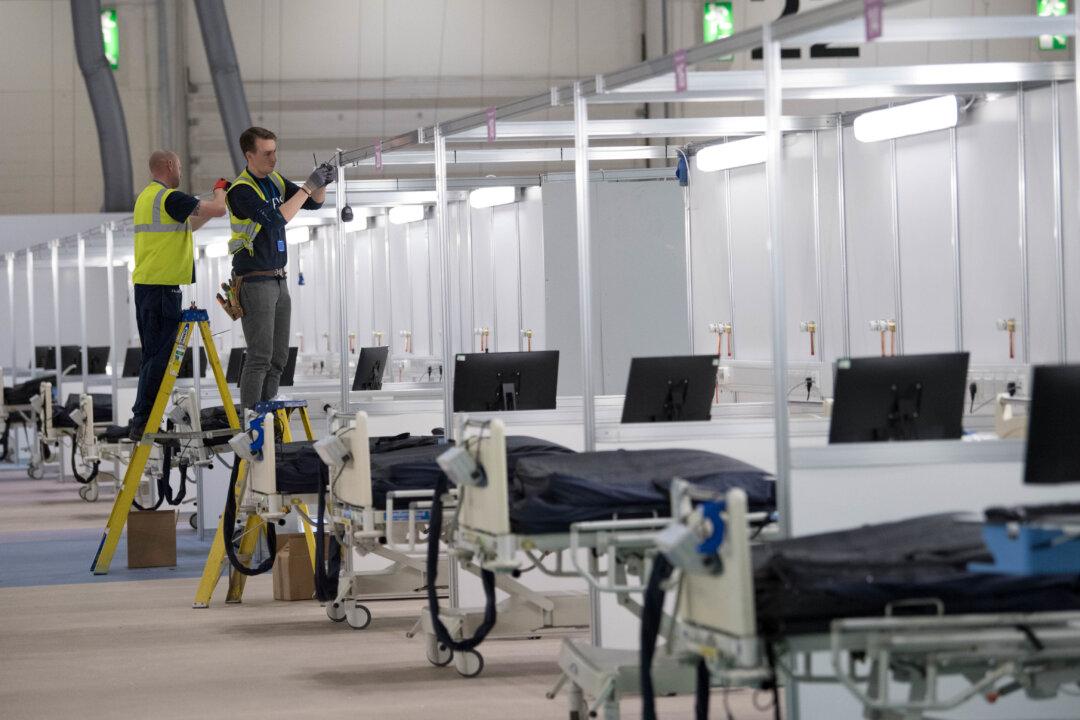Britain’s Health Secretary Matt Hancock said on Wednesday that the government would not rule out moving hospital patients into hotels in order to free up beds for people suffering from the CCP virus.
Asked if hotels would be used in this way Hancock told ITV News that though it was not something the government was “actively exploring.” It was nonetheless among the possibilities being considered to tackle the burgeoning shortage of National Health Service (NHS) beds amid the pandemic.





